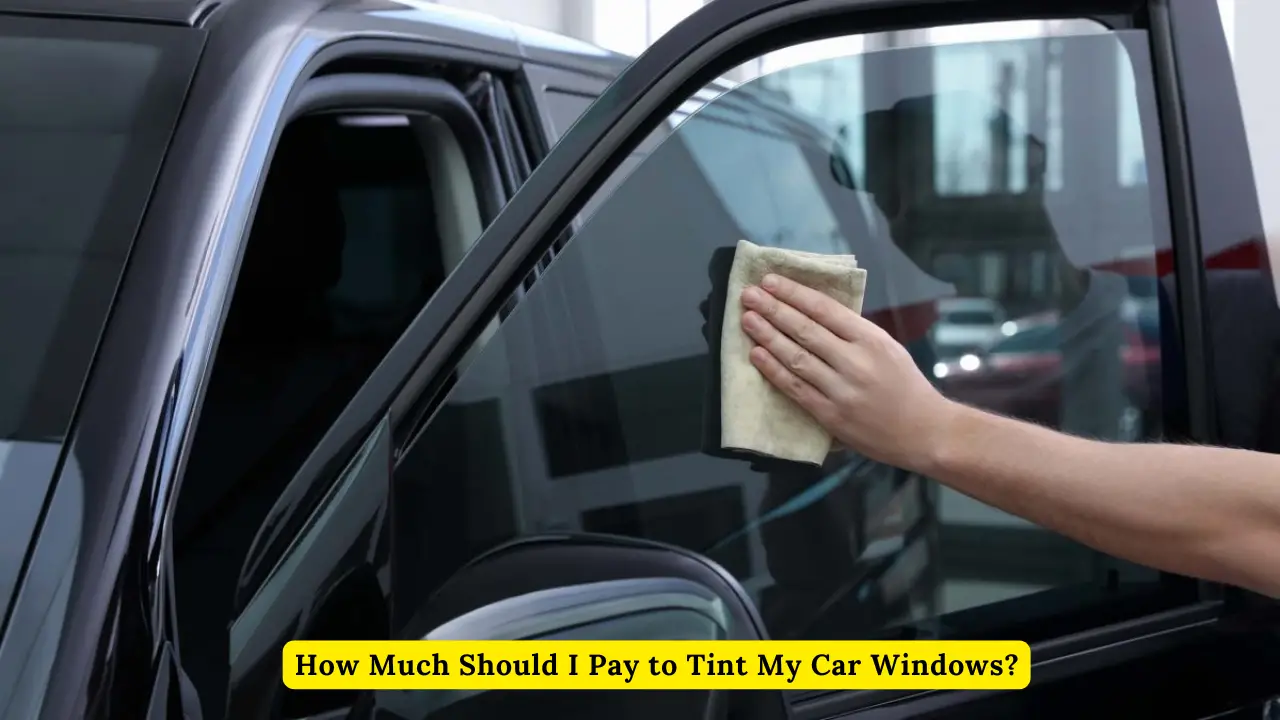Tinting your car windows can provide numerous benefits, from reducing glare and heat to enhancing privacy and protecting the interior from UV damage. However, one of the most common questions car owners have is, “How much should I pay to tint my car windows?” The cost of window tinting can vary widely based on several factors. In this comprehensive guide, we will explore these factors and help you determine a reasonable budget for tinting your car windows. How Much Should I Pay to Tint My Car Windows?
Factors Influencing the Cost of Window Tinting
1. Type of Window Tint Film
The type of window tint film you choose is one of the primary factors affecting cost. Here are some common types:
- Dyed Film: This is the most affordable option, providing a dark appearance but minimal heat and UV protection.
- Metalized Film: Offers better heat and UV protection than dyed film, with a reflective appearance. It’s slightly more expensive than dyed film.
- Carbon Film: Provides good UV protection and heat rejection without the reflective look. It’s more durable than dyed and metalized films.
- Ceramic Film: The most advanced option, offering excellent heat and UV protection, glare reduction, and durability. It’s also the most expensive.
2. Quality of Installation
Professional installation is crucial for achieving the best results. While you might find lower prices for DIY kits, professional installation ensures a cleaner, longer-lasting finish. The expertise of the installer can impact the overall cost, with experienced professionals typically charging more for their services.
3. Number of Windows
The cost will also depend on the number of windows you wish to tint. Tinting just the front windows will be less expensive than tinting all the windows, including the rear and side windows. Some car owners choose to tint only specific windows based on their preferences and budget.
4. Vehicle Type and Size
The size and type of your vehicle play a role in determining the cost of window tinting. Larger vehicles, such as SUVs and vans, generally require more tint film and time to install, leading to higher costs compared to compact cars.
5. Local Regulations
Different states and regions have specific laws regarding the darkness and reflectivity of window tints. Compliance with these regulations can impact the type of film used and the cost of installation. It’s essential to research local laws before tinting your windows to avoid potential fines or legal issues.
Average Cost of Car Window Tinting
Based on the factors mentioned above, here’s a general breakdown of the average cost of window tinting:
- Economy Tinting: Using basic dyed film, the cost can range from $100 to $200 for a full car.
- Mid-Range Tinting: Metalized or carbon films typically cost between $200 and $400 for a full car.
- High-End Tinting: Ceramic films can range from $400 to $800 or more for a full car.
Remember that these prices are estimates and can vary based on your location, the expertise of the installer, and any additional services offered.
Benefits of Car Window Tinting
While the cost of window tinting might seem significant, the benefits often outweigh the initial investment:
1. Heat Reduction
Window tinting can significantly reduce the amount of heat that enters your car, making the interior more comfortable, especially during hot summer months. This can also reduce the need for air conditioning, improving fuel efficiency.
2. UV Protection
High-quality window tints block up to 99% of harmful UV rays, protecting your skin and the interior of your car from sun damage. This can prevent fading and cracking of upholstery and dashboards.
3. Privacy and Security
Tinted windows provide an added layer of privacy, preventing potential thieves from easily seeing into your vehicle. This can reduce the risk of break-ins and protect your belongings.
4. Glare Reduction
Tinted windows reduce glare from the sun and headlights, enhancing visibility and reducing eye strain while driving.
Choosing the Right Window Tint
When selecting a window tint, consider the following tips to ensure you make the best choice:
- Research Local Laws: Ensure that your chosen tint complies with local regulations regarding tint darkness and reflectivity.
- Consider Your Needs: Determine your primary reasons for tinting, such as heat reduction, privacy, or UV protection, and choose a film that meets those needs.
- Consult a Professional: Speak with a professional installer to discuss your options and receive a quote tailored to your vehicle and preferences.
- Check Warranties: Look for films that come with a warranty, ensuring that you are covered in case of defects or fading.
Conclusion
The cost of tinting your car windows can vary based on several factors, including the type of film, quality of installation, and your vehicle’s size. While it may require an upfront investment, the benefits of window tinting, such as heat reduction, UV protection, and increased privacy, make it a worthwhile consideration for many car owners. To ensure you get the best value for your money, research your options, consult with professionals, and choose a film that meets your needs and budget.
